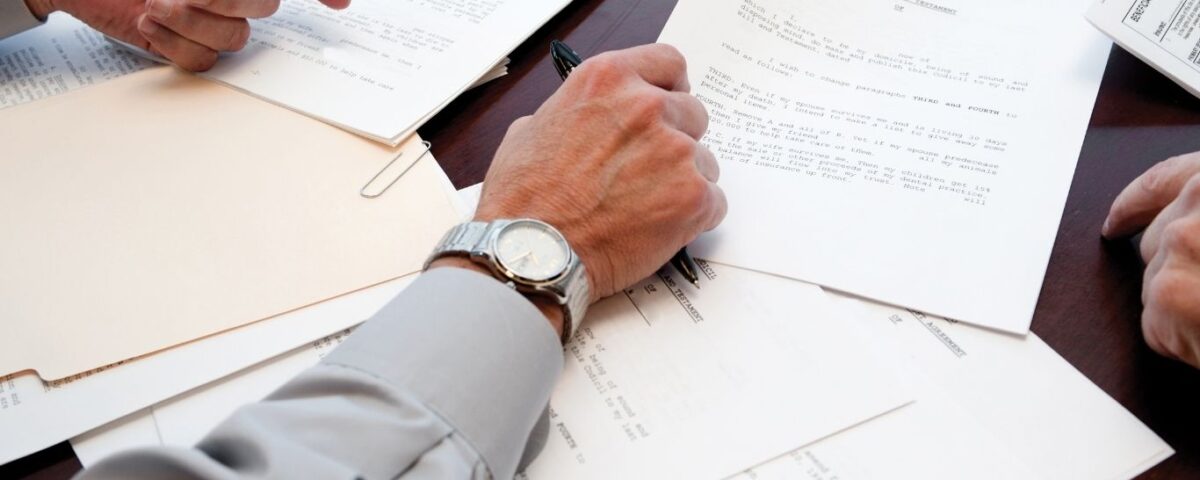
How to Get a Suspended License Reinstated in Indiana: What You Need to Know in Bloomington & Martinsville
April 16, 2025
How a DUI Can Affect Your College Financial Aid or Scholarships
May 12, 2025How Do I Make a Will Legal in Indiana? A Simple Guide for Families in Bloomington & Martinsville

Creating a legally valid will is one of the most important steps you can take to protect your family and ensure your wishes are honored. For residents of
Bloomington and Martinsville, Indiana, understanding the requirements and steps involved in making a will legal can offer peace of mind and prevent unnecessary confusion or conflict down the road.
If you’ve found yourself asking, “How do I make a will legal?” — you’re not alone. In this guide, we’ll break down the legal standards for wills in Indiana and provide clear, actionable steps to help individuals and families across Monroe and Morgan Counties get their
estate planning in order.
What Makes a Will Legal in Indiana?
In Indiana, a will must meet specific legal criteria to be valid. These requirements include:
- Testamentary capacity: The person making the will (the testator) must be at least 18 years old and of sound mind.
- Written document: The will must be in writing (typed or handwritten).
- Signature of the testator: The will must be signed by the person making it.
- Witnesses: Two competent adults must witness the signing of the will. These witnesses must also sign the document.
Wills that do not meet these standards can be challenged or deemed invalid during probate, which can delay or disrupt the distribution of your assets.
Step-by-Step: How to Make a Will Legal in Indiana
1. Clearly State It’s Your Will
Start your document by declaring it as your last will and testament. This confirms your intention to create a legally binding will.
2. Identify Yourself and Your Family
Include your full name, address, and names of your spouse, children, or other key family members to clarify relationships.
3. Appoint an Executor
Choose a trusted person to manage your estate after your passing. This person will carry out the instructions in your will.
4. Detail Your Asset Distribution
Be specific about how you want your property and assets divided. This can include real estate, personal belongings, bank accounts, and more.
5. Name a Guardian (if applicable)
If you have minor children, name a legal guardian who will care for them if something happens to you.
6. Sign the Will in Front of Witnesses
You must sign your will in the presence of two competent adult witnesses. These witnesses should also sign it at the same time to ensure validity.
7. Consider a Self-Proving Affidavit
Although not required, Indiana allows a self-proving affidavit that can make the probate process smoother by validating your will without witness testimony.
8. Store the Will Safely
Keep your will in a secure place, such as a fireproof safe or with your attorney. Inform your executor of its location.
Why Working with an Attorney Matters
While it’s technically possible to create a will without legal help, even small errors can lead to major complications. An estate planning attorney ensures your will meets Indiana’s legal requirements and reflects your exact wishes.
At BOC Lawyers, we work with families in Bloomington and Martinsville to create custom wills that hold up in court and give your loved ones clarity and protection. We’ll guide you through complex situations like blended families, second marriages, or owning property in multiple states.
Local Estate Planning in Bloomington & Martinsville
- Bloomington (Monroe County): With a large population of retirees, professionals, and IU faculty, estate planning is essential to ensure smooth transitions and protect generational wealth.
- Martinsville (Morgan County): For families and small business owners, having a legally valid will can prevent estate disputes and ease the burden on loved ones.
How Do I Make a Will Legal in Indiana? FAQs
Q: Do I need a lawyer to make a will legal in Indiana?
A: No, but working with an attorney ensures that your will meets all legal standards and avoids common mistakes that can invalidate it.
Q: Can I write my own will by hand?
A: Yes, handwritten wills (also known as holographic wills) are allowed in Indiana but must still meet all requirements, including witnesses.
Q: What happens if my will isn’t witnessed properly?
A: It may be considered invalid, which can result in your estate being distributed under Indiana’s default laws, not your wishes.
Q: Where should I store my will?
A: Keep it in a safe, secure place—ideally with your attorney or in a fireproof safe. Make sure your executor knows where to find it.
Q: How often should I update my will?
A: Review your will after any major life change—marriage, divorce, birth of a child, significant financial changes—or at least every 3–5 years.
Ready to Create a Legally Valid Will?
If you’re ready to protect your family and make your wishes legally binding, the
estate planning team at
BOC Lawyers is here to help. We serve clients throughout the Bloomington and Martinsville area with personalized, legally sound wills that stand the test of time.
Contact us today to schedule a consultation and take the first step toward securing your legacy.
